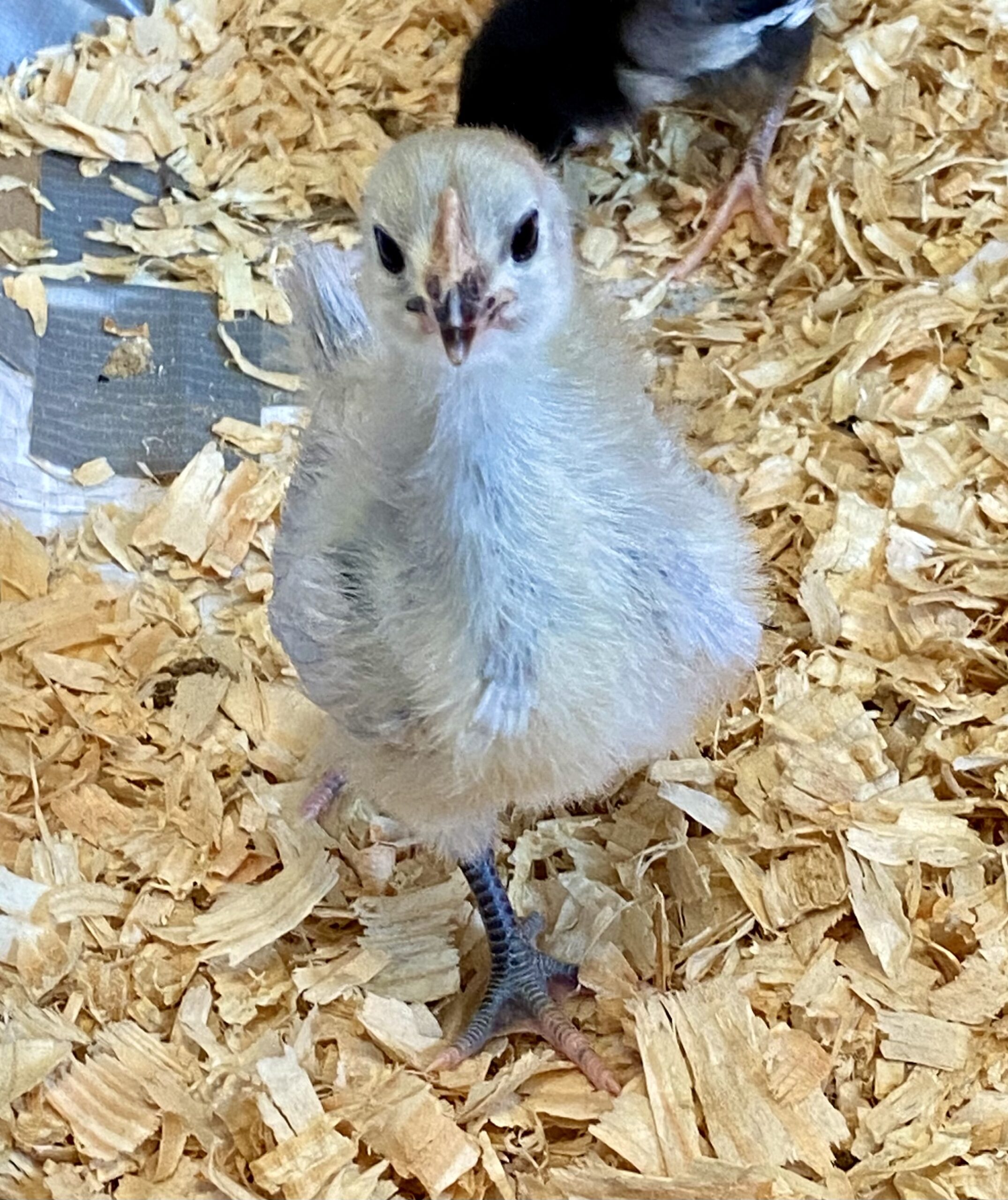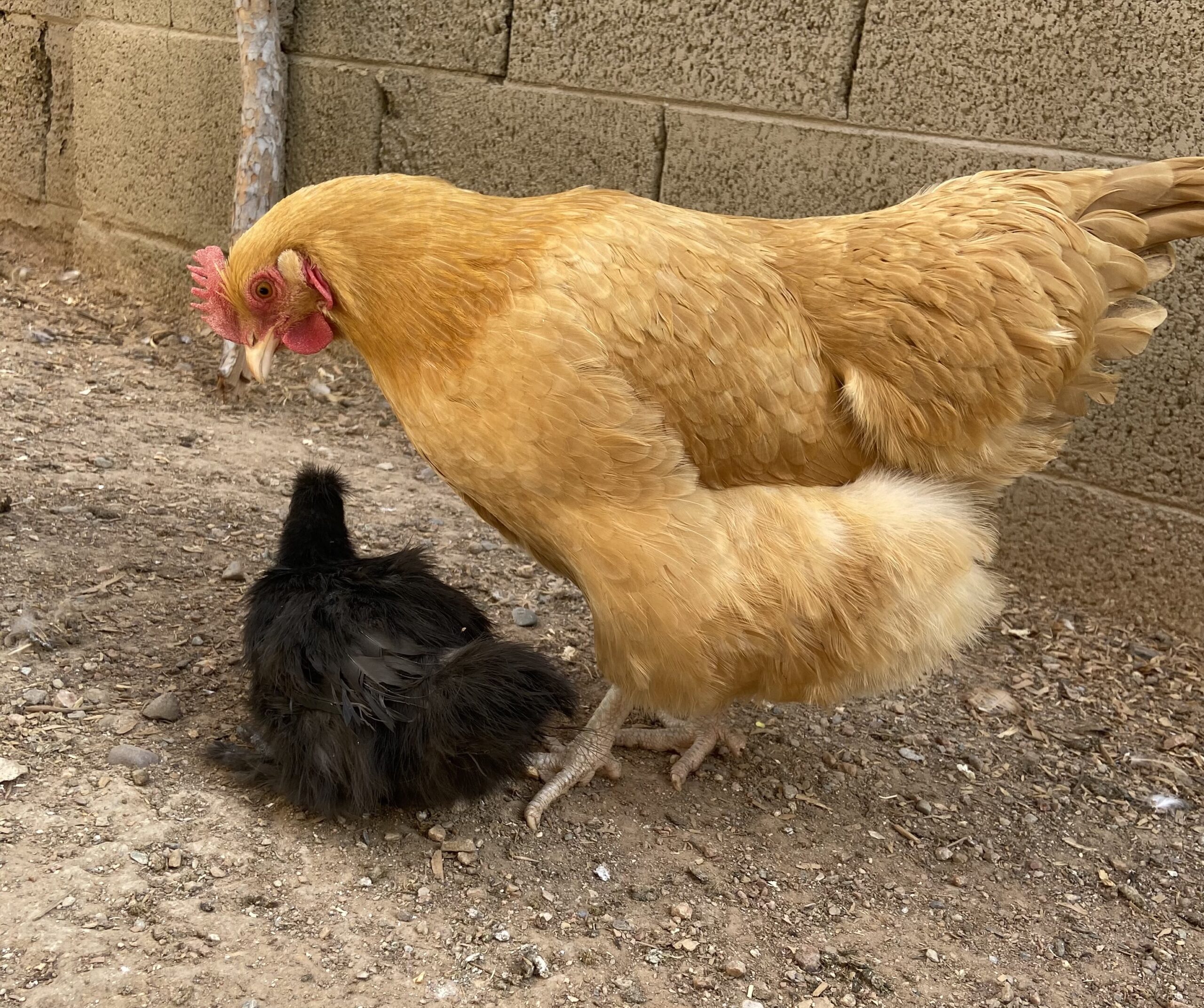What to Look for When Purchasing Healthy Chickens
March 12, 2024 | Molly Sutton
Not all stores let you pick out your own chicks, but if you are lucky enough to be in a position to pick out what chicks/adult chickens you want to buy, these are things you want to look for to make sure you are purchasing a healthy chicken!
5 things to consider when picking your chickens:
1. The Chicken’s Health
Check over each flock member for signs of illness to ensure you are purchasing healthy chickens!
Chick Health Check
- Look for extra extremities
-
- We know people who have purchased chicks with extra toes and even an extra butt! Obviously, the extra butt chick did not make it.
-
- Look for curled toes
- Check for splay leg
- Does the chick have Pasty butt?
-
- This can be easily remedied at home, but still check for it.
-
- What is the chick’s energy level?
-
- Spend a bit of time with the chicks in the store. Chicks sleep a lot, but if you see a chick with heavily strained breathing, off on its own, sleeping a lot, it may be best to avoid purchasing that chick
-
- Ensure the chick is eating and drinking.
-
- Make sure you pick chicks that have a healthy appetite and are drinking well!
-
Health Checks should be performed on your flock regularly.
Concerned for the health of the chickens you are looking at? Learn how to tell if you are purchasing chickens from a reputable source!
Pullet Health Check
- Look for the same things as a chick health check.
- Also check for tumors.
-
- Tumors can be hard to spot, but any extra bumps are something to avoid.
- The one and only time we purchased a chick from a pet store, we asked the owner about a bump on her shoulder. She said it was nothing, the feathers just had not come in yet. She passed away from Marek’s Disease a year or so later.
-
Adult Health Check
- Look for the same things as a chick and pullet health checks.
- Any eye abnormalities, vent issues, bugs, gaping/grasping for air, down tails, upturned or crusty scales on legs, and bumblefoot should be of concern as they are not signs of healthy chickens.
- Weight: depending on the breed, a healthy egg laying hen should weigh between 2-4lbs. Feel her stomach if she feels light. Check for water belly by pressing her abdomen.
- Check that her beak is straight and not overgrown.
2. The Chicken’s Sex
Depending on why you want to raise chickens, you may only want hens, roosters, or you may not even care! Adult roosters and hens are easy to tell apart, since roosters have spurs and are larger than their female counterparts.
Straight Run
- This mean the chicks are a mix of males and females that were not sexed at the hatchery. Usually, these chicks are cheaper because someone has not done the work of sexing them for you. Some breeds can be sexed early on, and some cannot.
- If you want only hens (because of resources, zoning restrictions, or personal preference), we suggest buying sexed chicks. If you have the ability to keep roosters, straight run chicks are a great option.
Sexed Chicks
- These chicks have been identified as male or female through different methods. Usually if a chick has been “sexed,” it is fairly accurate. Some breeds are more difficult to sex than others though.
- Sexed chicks are usually a bit more expensive than straight run chicks, but worth the cost if you are positive you do not want to bring home a rooster. Or, if you are sure you only want roosters!
3. The Chicken’s Size
A chicken’s size can be a great indicator of a healthy or unhealthy chicken.
Layer Hens
It is best to Google the average weight of the breed you are purchasing though.
In a rescue situation, obviously, this becomes the target weight during rehab.
Bantam Hens
It is best to Google the average weight of the breed you are purchasing though.
Chicks
If purchasing straight run chicks: larger chicks of the same age have a greater chance of being roosters.
Do not always go for the smallest chick though…Sometimes this is a sign of a nutrient deficiency or some developmental issues. Chicks are very fragile in the first week and smaller ones may not make it.
2. The Chicken’s Pedigree
Are you wanting to breed or show your chickens? Then pedigree matters. Ask the hatchery or farmer about the chicken’s history. Some chicken parents are registered with the APA.




0 Comments